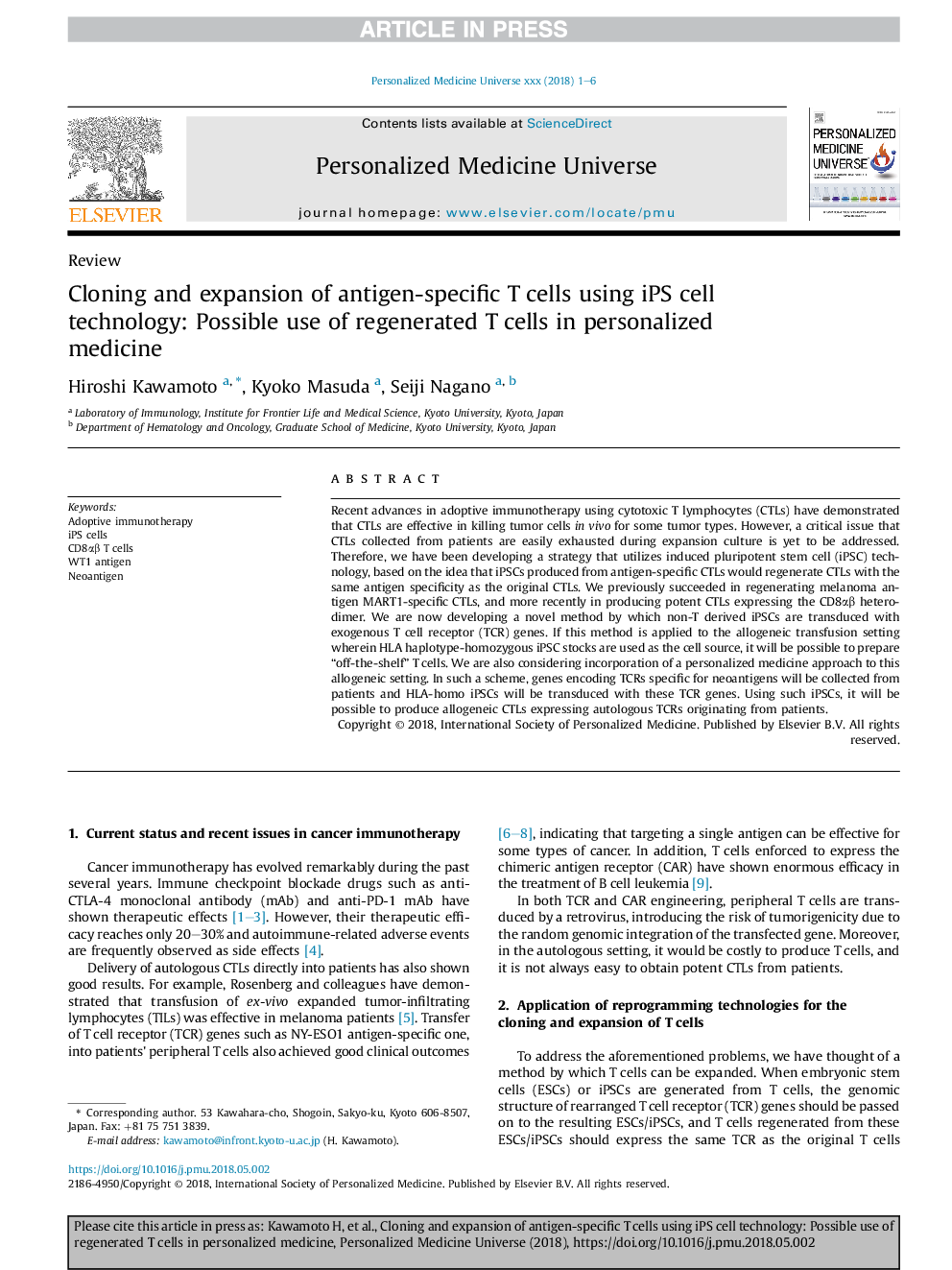| Article ID | Journal | Published Year | Pages | File Type |
|---|---|---|---|---|
| 8742076 | Personalized Medicine Universe | 2018 | 6 Pages |
Abstract
Recent advances in adoptive immunotherapy using cytotoxic T lymphocytes (CTLs) have demonstrated that CTLs are effective in killing tumor cells in vivo for some tumor types. However, a critical issue that CTLs collected from patients are easily exhausted during expansion culture is yet to be addressed. Therefore, we have been developing a strategy that utilizes induced pluripotent stem cell (iPSC) technology, based on the idea that iPSCs produced from antigen-specific CTLs would regenerate CTLs with the same antigen specificity as the original CTLs. We previously succeeded in regenerating melanoma antigen MART1-specific CTLs, and more recently in producing potent CTLs expressing the CD8αβ heterodimer. We are now developing a novel method by which non-T derived iPSCs are transduced with exogenous T cell receptor (TCR) genes. If this method is applied to the allogeneic transfusion setting wherein HLA haplotype-homozygous iPSC stocks are used as the cell source, it will be possible to prepare “off-the-shelf” T cells. We are also considering incorporation of a personalized medicine approach to this allogeneic setting. In such a scheme, genes encoding TCRs specific for neoantigens will be collected from patients and HLA-homo iPSCs will be transduced with these TCR genes. Using such iPSCs, it will be possible to produce allogeneic CTLs expressing autologous TCRs originating from patients.
Related Topics
Health Sciences
Medicine and Dentistry
Immunology, Allergology and Rheumatology
Authors
Hiroshi Kawamoto, Kyoko Masuda, Seiji Nagano,
